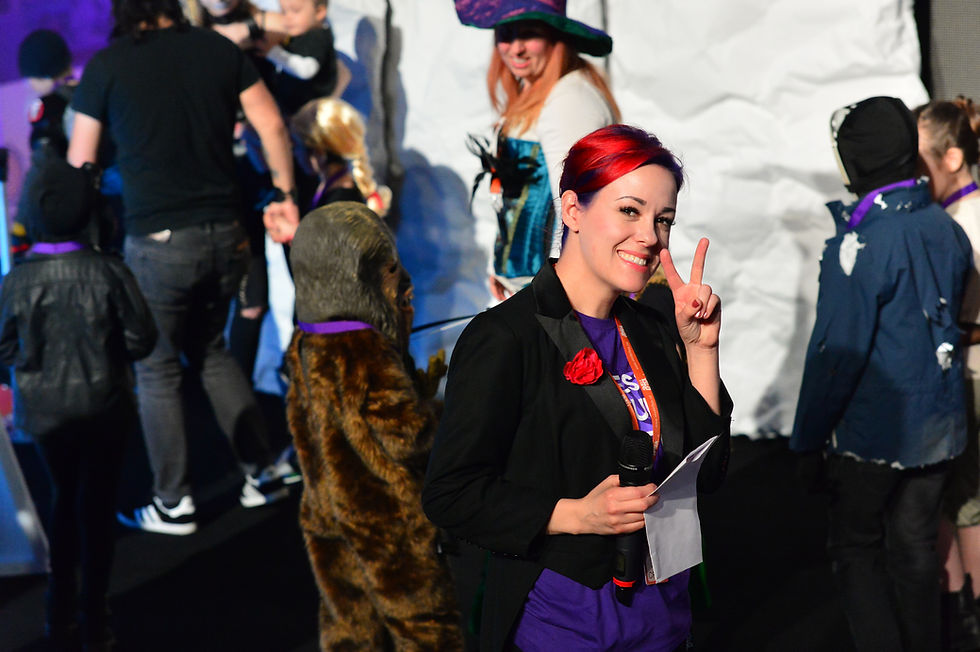Sound design in games today: Q&A with Cajsa Larsson
- The Goose

- May 19, 2021
- 3 min read
Updated: Aug 24, 2022
When we spoke to Sound Designer Cajsa Larsson, we heard echoes of our interview with audio entertainment company Wanderword’s Lead Designer Henrik Lindfors. Again we heard that while the role of sound is essential to a game’s success, the place of sound design in the production process is mixed across the industry.
Ahead of her upcoming Friday Stories event, we asked Cajsa to share her insights with the aspiring game developers and designers in our community who may be unfamiliar with how sound designers can be integrated into their creative process.
She took the time to answer a few questions based on what she’s seen and experienced in her experience as a composer and sound designer working in-house with indie studio Forgotten Key, Ubisoft’s Massive Entertainment, and Sharkmob.
Trailer: Aer - Memories of old, Source: Daedalic Entertainments YouTube channel
When are sound designers and composers included in the game-making process?
It varies from project to project and company to company. My experience at an indie was that I was involved from the get-go. Like a concept artist making concept art, I was making concept music, conceptualizing audio, and making different versions as the game developed. I wouldn’t say it's the standard today, but I believe more and more companies are realizing the importance of sound and music and bring it into the process earlier.
How do indie studios generally incorporate sound designers into their team?
It was atypical at Forgotten Key. I was one of the Founders and so came in early in the process. The typical approach is to hire a freelancer and have them on retainer. Indies might also have them on a contract working part-time for six months or something, and then scaling up toward the end of a project. For sound design, a big studio would have in-house people, but they’d consult with an external composer. But that depends on the studio, too. I know some big studios have in-house composers.
Is music always part of the Sound Designer’s role?
Not always. At Sharkmob, the role of Sound Designer does a little bit of everything. It’s a little broad what my role entails. Right now, I’m not making music, but I’m doing a lot of remixing - remixing the composer’s stems to make sure that it fits into the game.

Source: Sharkmobs website
Are there specialist composers working in games?
Again, it varies from company to company. It’s a bit easier when you have someone who understands games implementation, but lately, a lot of movie composers have been coming into games. More and more, it's recognized as something traditional composers want to get into.
What are some of the challenges when transitioning from a small indie to a large studio?
Things you take for granted working by yourself don’t work in a bigger company. It’s basic things, like structuring your work so multiple people can work at the same time. But it’s also having someone do things with your work that you didn’t imagine. So, thinking of design as a team effort. Before it was just me, and while I enjoy the creative process where I have control, it’s a fun process when others bring something to the table.
When I started, it was hard to get feedback. People don’t always think about how they say something and how it might be perceived. It can come out harshly. When you grow accustomed to it and gain distance from your work, it becomes easier to understand.
I’ve had that where you don’t really see your work the way other people see it, but it really can help.
There is still time to sign up to Cajsa's talk on Friday!
Interested in more events like these?





Comments